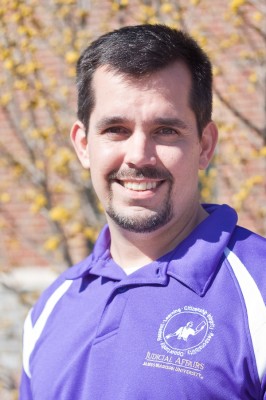
The journey of bringing restorative justice to James Madison University’s Office of Judicial Affairs has been one of the most fulfilling endeavors I have ever undertaken. Restorative justice fits my view of the potential of people in the world and I also believe the principles and practices of restorative justice are a perfect fit for the mission of James Madison University:
“We are a community committed to preparing students
to be educated and enlightened citizens
who lead productive and meaningful lives.”
I as well as many others who have practiced student discipline in the university setting thought we knew what restorative justice was. Well, after studying with the “grandfather” of the field, Howard Zehr, I can say, “I was extremely wrong” in my understanding of restorative justice. Learning about the principles and practices of restorative justice has transformed my view of the potential of student discipline and reenergized my professional focus.
The truth is, it is as much the people that I have met who are involved with restorative justice as the practice itself that has made all the difference. For me, restorative justice started as yet another “tool” to be used in educating students, but as I learned more and dug deeper it became a new way of seeing the world. It started in our judicial process but has moved to many areas around the JMU campus, including into the Masters-level College Student Personnel Administration classes which I teach. The values and principles of restorative justice transfer to many areas in higher education institutions. So much of what we are trying to support students in relates to building community, respecting self and others, and engaging life in a meaningful way.
I have seen restorative justice challenge our students in a new way and transform their view of conflict and relationships. The restorative justice circle processes conducted at JMU have shown extraordinary engagement by students and in some cases changed the community in meaningful ways. I have seen many negative, harmful incidents go through restorative processes and come out the other side with transformed students and community members. This is not something people involved in student discipline are used to seeing, and I believe higher education is just beginning to discover the potential of restorative justice practices in creating educated and enlightened citizens.
